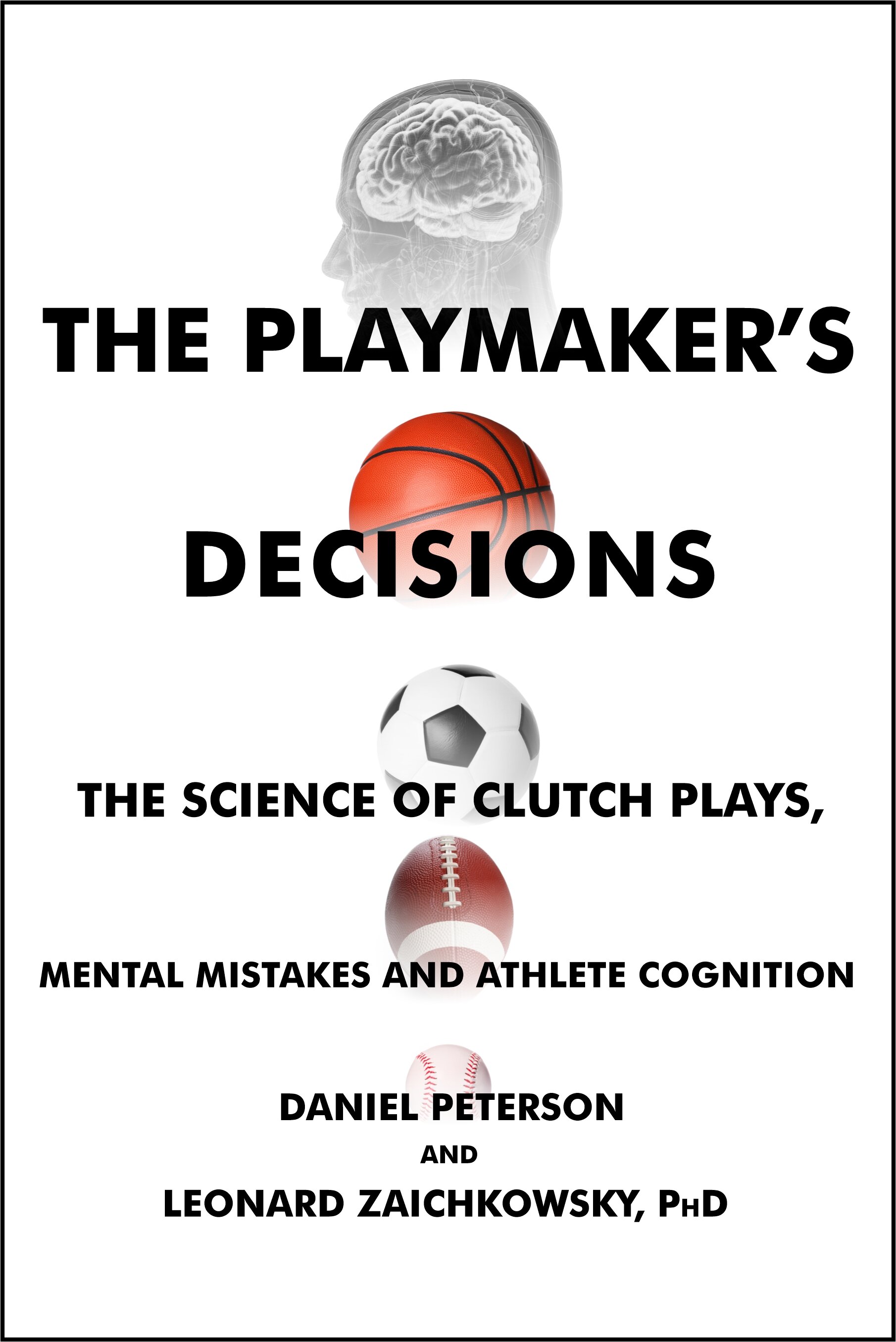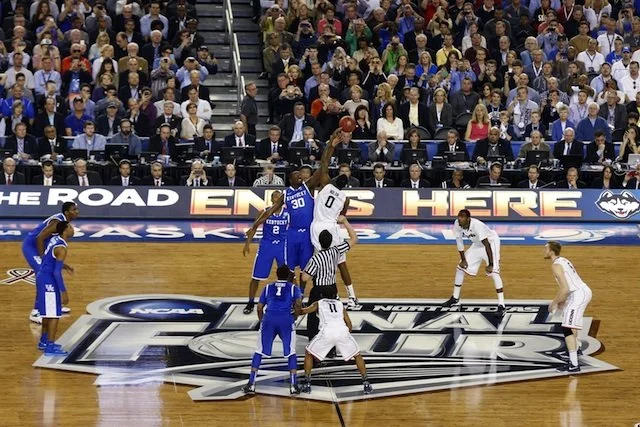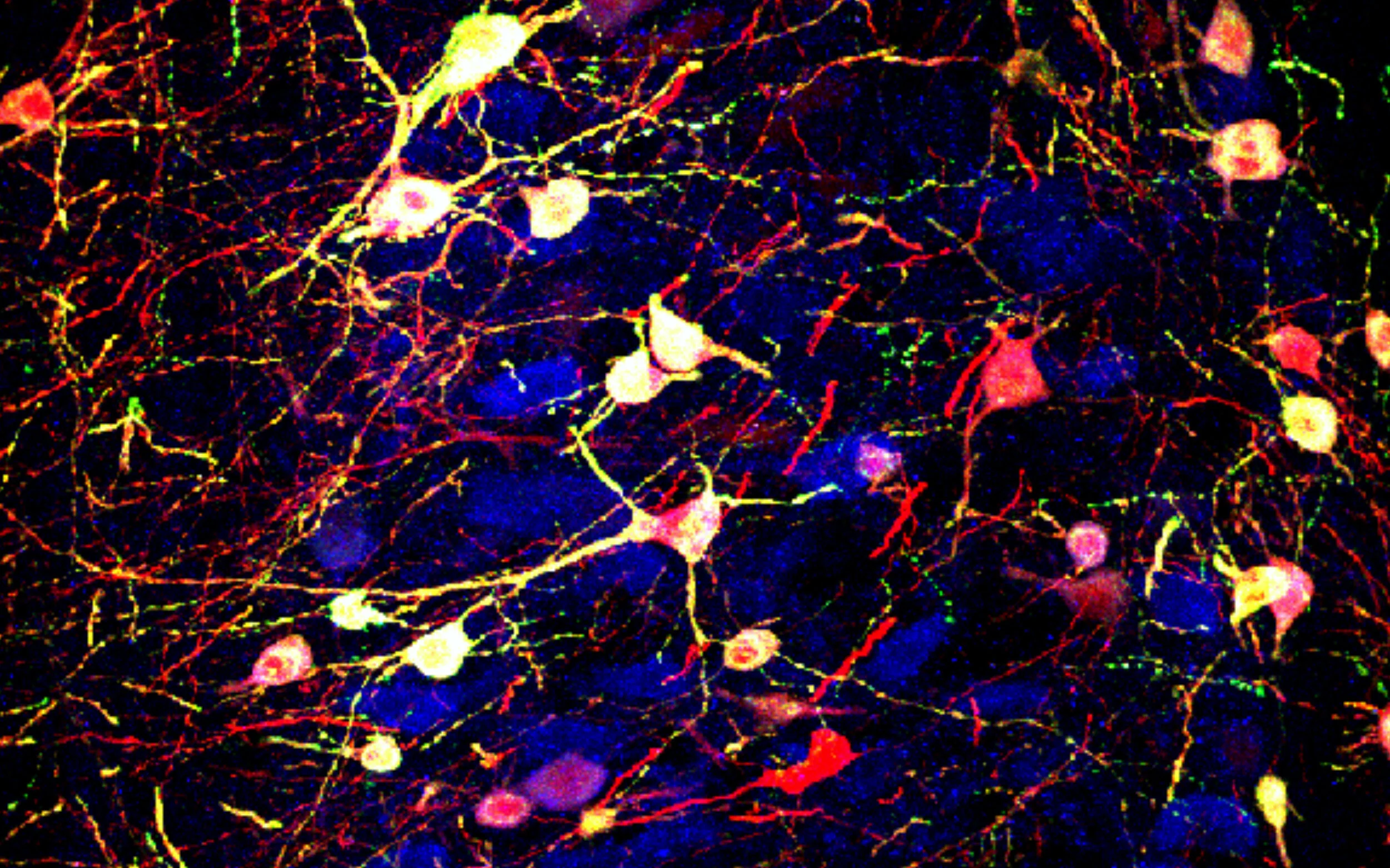For Sports Betting, The Crowd Usually Picks The Favorite
/
Point spreads -- the number of points by which a strong team can be expected to defeat a weaker team -- are supposed to reflect the "wisdom of crowds." But a new study in the Journal of Consumer Research found that crowds don't have a clue.
"Point spread betting markets seem to offer an important example of crowd wisdom, because point spreads are very accurate and are widely believed to reflect the 'crowd's' prediction of upcoming sporting events," write authors Joseph P. Simmons (Yale University), Leif D. Nelson (University of California at Berkeley), Jeff Galak (Carnegie Mellon University), and Shane Frederick (Yale University). But previous research shows that bettors are biased in their predictions; their intuitions tend to favor "favorites" over "underdogs", in everything from NFL football to NCAA basketball betting.
The authors conducted a season-long investigation of the betting habits of enthusiastic NFL football fans from diverse regions of the United States. Participants wagered more than $20,000 on football games against point spreads that were manipulated to favor the underdog.
The authors first tested a hypothesis that crowds will wisely choose underdogs against spreads that disadvantage favorites. The bettors failed this test, predicting vastly more favorites (89 percent) than underdogs. Next, they found that even when bettors were warned that the spreads had been increased they still predicted favorites only slightly less often (83 percent).
"In this context, the temptation to rely on one's intuition is so strong as to lead people to rely on what they intuitively feel to be true (this favorite will prevail against the spread) rather than on what they generally know to be true (the favorite will usually lose against the spread)" the authors write. And it seems people have trouble learning from their mistakes: the crowd's predictions worsened over time, rather than getting better.
Finally, the researchers hit upon a method of eliciting better choices. "Asking people to predict point differentials rather than make choices against point spreads decreased reliance on faulty intuitions and produced vastly different, and vastly wiser, predictions against the spread," the authors conclude.
Source: University of Chicago Press Journals and Joseph P. Simmons, Leif D. Nelson, Jeff Galak, and Shane Frederick. Intuitive Biases in Choice vs. Estimation: Implications for the Wisdom of Crowds. Journal of Consumer Research, June 2011
See also: TV Ratings A Better Predictor Of NFL Consumer Demand Than Attendance and ESPN Study Finds Retired NFL Players Are Heavy Users Of Pain Meds
"Point spread betting markets seem to offer an important example of crowd wisdom, because point spreads are very accurate and are widely believed to reflect the 'crowd's' prediction of upcoming sporting events," write authors Joseph P. Simmons (Yale University), Leif D. Nelson (University of California at Berkeley), Jeff Galak (Carnegie Mellon University), and Shane Frederick (Yale University). But previous research shows that bettors are biased in their predictions; their intuitions tend to favor "favorites" over "underdogs", in everything from NFL football to NCAA basketball betting.
The authors conducted a season-long investigation of the betting habits of enthusiastic NFL football fans from diverse regions of the United States. Participants wagered more than $20,000 on football games against point spreads that were manipulated to favor the underdog.
The authors first tested a hypothesis that crowds will wisely choose underdogs against spreads that disadvantage favorites. The bettors failed this test, predicting vastly more favorites (89 percent) than underdogs. Next, they found that even when bettors were warned that the spreads had been increased they still predicted favorites only slightly less often (83 percent).
"In this context, the temptation to rely on one's intuition is so strong as to lead people to rely on what they intuitively feel to be true (this favorite will prevail against the spread) rather than on what they generally know to be true (the favorite will usually lose against the spread)" the authors write. And it seems people have trouble learning from their mistakes: the crowd's predictions worsened over time, rather than getting better.
Finally, the researchers hit upon a method of eliciting better choices. "Asking people to predict point differentials rather than make choices against point spreads decreased reliance on faulty intuitions and produced vastly different, and vastly wiser, predictions against the spread," the authors conclude.
Source: University of Chicago Press Journals and Joseph P. Simmons, Leif D. Nelson, Jeff Galak, and Shane Frederick. Intuitive Biases in Choice vs. Estimation: Implications for the Wisdom of Crowds. Journal of Consumer Research, June 2011
See also: TV Ratings A Better Predictor Of NFL Consumer Demand Than Attendance and ESPN Study Finds Retired NFL Players Are Heavy Users Of Pain Meds












